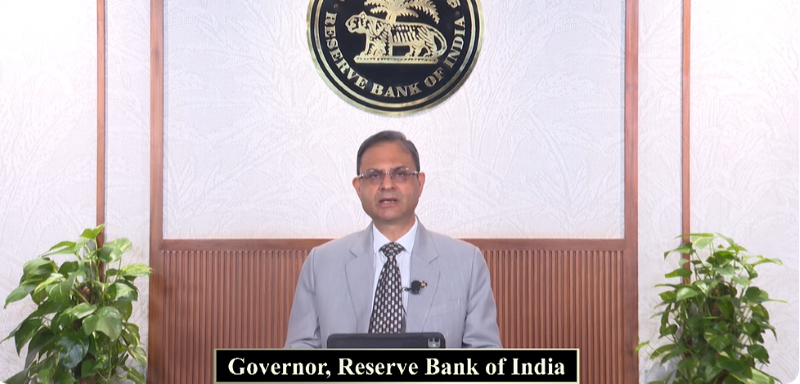
RBI’s 100 bps rate cuts to aid growth amid global uncertainty, says Governor Malhotra
Mumbai: Reserve Bank of India Governor Sanjay Malhotra said the central bank’s cumulative 100 basis points (bps) cut in both the repo rate and Cash Reserve Ratio (CRR) since February will help stabilise the Indian economy amid global volatility and provide momentum for growth.
“This package of measures will provide some certainty in the times of uncertainty and is expected to support growth,” Malhotra stated, according to the minutes of the Monetary Policy Committee’s (MPC) June meeting released on June 20, Moneycontrol reported.
At its June review, the RBI reduced the repo rate by 50 bps to 5.5 percent—its second consecutive rate cut following a similar move in February.
The rate cuts came against the backdrop of faster-than-expected disinflation, with retail inflation in April slipping to 3.2 percent—the lowest in nearly six years.
This provided the RBI greater flexibility to shift its focus toward growth.
For FY26, the headline inflation rate is projected to average 3.7 percent, staying well below the RBI’s 4 percent target.
Governor Malhotra noted that although India’s GDP grew 6.5 percent in FY25—supported by a robust 7.4 percent expansion in the March quarter—overall growth still lags behind the country’s aspirations.
“While growth remains steady, it is lower than our aspirations,” he said.
Malhotra acknowledged signs of improving demand.
He said rural consumption is likely to benefit from an above-normal monsoon, while urban demand could get a lift from falling prices.
However, he pointed out that capital expenditure is largely driven by the public sector.
“Private sector investments have been weak despite high capacity utilisation and improved corporate balance sheets,” he said, citing global uncertainties as a drag on sentiment.
He added that front-loading rate cuts, coupled with clear guidance on liquidity conditions, would “send a clear signal to the economic agents,” and potentially stimulate both consumption and private investment.
In a key shift, the MPC moved its policy stance from ‘accommodative’ to ‘neutral’, indicating that future decisions will be guided more closely by incoming data, particularly around inflation and growth trends.
Support Our Journalism
We cannot do without you.. your contribution supports unbiased journalism
IBNS is not driven by any ism- not wokeism, not racism, not skewed secularism, not hyper right-wing or left liberal ideals, nor by any hardline religious beliefs or hyper nationalism. We want to serve you good old objective news, as they are. We do not judge or preach. We let people decide for themselves. We only try to present factual and well-sourced news.







